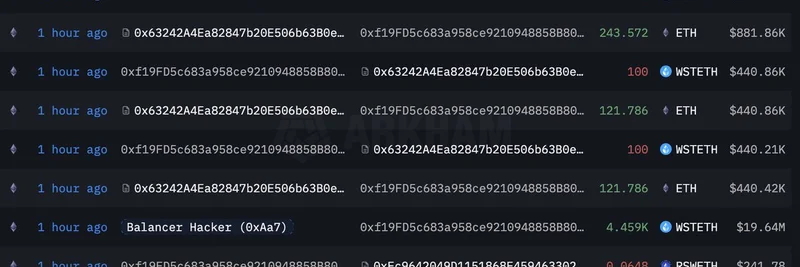In the fast-paced world of crypto, drama often unfolds on platforms like X (formerly Twitter), where key players air their grievances and defenses in real time. Recently, a tweet from Mike Dudas, a prominent crypto investor and co-founder of The Block, caught the community's attention. Dudas, known for his sharp insights, posted about ongoing accusations against Paxos in the Hyperliquid ecosystem, emphasizing the need for victory without slander.
For those new to the scene, Hyperliquid is a decentralized perpetual futures exchange built on its own layer-1 blockchain. It's gained traction for its high-speed trading and has become a hub for meme tokens and DeFi activities. The controversy revolves around the "USDH process," which appears to be a governance vote related to integrating or approving a stablecoin—likely a USD-pegged asset on Hyperliquid. Stablecoins like those from Paxos provide stability in volatile markets, making them crucial for traders dealing in meme tokens and other assets.
The spark came from a quoted post by Steven.hl, Chief Degen Officer at Yunt Capital, who expressed shock over claims that Paxos indirectly bribed validators to sway votes. Validators in blockchain networks like Hyperliquid are responsible for verifying transactions and maintaining consensus; bribing them could undermine the entire system's fairness. Steven highlighted the irony: accusers had pointed fingers at HL Labs (likely Hyperliquid Labs) for rigging the game, yet they themselves allegedly tried similar tactics. He argued this behavior clashes with Hyperliquid's ethos of transparency and decentralization.
Dudas jumped in to defend Paxos, a well-established company famous for issuing regulated stablecoins like USDP. He stated that winning isn't enough—slandering opponents in victory is unnecessary. Dudas vouched for the Paxos team's integrity, based on his personal knowledge, and shared their assurances that the accusations are false. This defense underscores a broader issue in crypto: the fine line between competition and character assassination, especially when billions in value are at stake.
Replies to Dudas's tweet reveal a divided community. Some users, like @versusdapp, noted that governance controlling massive funds inevitably leads to such tensions. Others, such as @murkiwaters, saw the competitive friction as a sign of Hyperliquid's growing appeal—everyone wants a slice of the pie. Comments ranged from calls for less tribalism and more innovation to questions about the impact on validator trust. One reply even likened the situation to a "serial" drama rather than a straightforward vote, highlighting how these events captivate the crypto Twitter crowd.
This saga matters for meme token enthusiasts because Hyperliquid hosts a vibrant ecosystem of fun, speculative assets. Meme tokens thrive on community hype and trust, but governance scandals can erode confidence, leading to price volatility or user exodus. If accusations like these persist without resolution, they could stifle innovation in DeFi platforms where meme tokens often launch and trade.
At its core, this episode reminds us that crypto's decentralized nature doesn't eliminate human elements like rivalry and misinformation. As blockchain practitioners, staying informed through reliable sources helps navigate these waters. Whether the claims hold water or not, the discussion pushes for higher standards in governance, benefiting everyone from casual meme traders to serious investors.
Keep an eye on Hyperliquid and Paxos for updates—this story is far from over, and it could shape how future votes and partnerships unfold in the meme token space.


